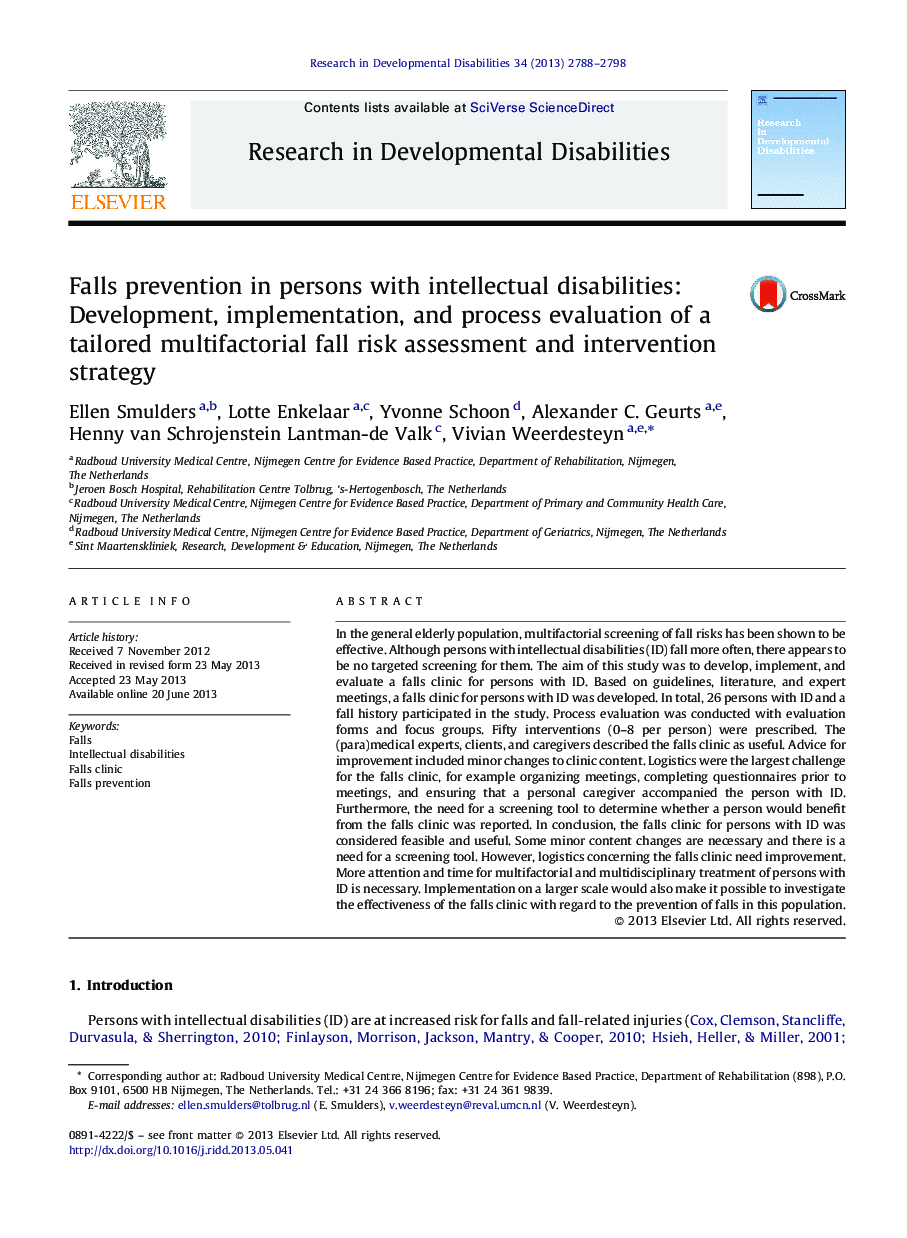| Article ID | Journal | Published Year | Pages | File Type |
|---|---|---|---|---|
| 10317765 | Research in Developmental Disabilities | 2013 | 11 Pages |
Abstract
In the general elderly population, multifactorial screening of fall risks has been shown to be effective. Although persons with intellectual disabilities (ID) fall more often, there appears to be no targeted screening for them. The aim of this study was to develop, implement, and evaluate a falls clinic for persons with ID. Based on guidelines, literature, and expert meetings, a falls clinic for persons with ID was developed. In total, 26 persons with ID and a fall history participated in the study. Process evaluation was conducted with evaluation forms and focus groups. Fifty interventions (0-8 per person) were prescribed. The (para)medical experts, clients, and caregivers described the falls clinic as useful. Advice for improvement included minor changes to clinic content. Logistics were the largest challenge for the falls clinic, for example organizing meetings, completing questionnaires prior to meetings, and ensuring that a personal caregiver accompanied the person with ID. Furthermore, the need for a screening tool to determine whether a person would benefit from the falls clinic was reported. In conclusion, the falls clinic for persons with ID was considered feasible and useful. Some minor content changes are necessary and there is a need for a screening tool. However, logistics concerning the falls clinic need improvement. More attention and time for multifactorial and multidisciplinary treatment of persons with ID is necessary. Implementation on a larger scale would also make it possible to investigate the effectiveness of the falls clinic with regard to the prevention of falls in this population.
Related Topics
Life Sciences
Neuroscience
Behavioral Neuroscience
Authors
Ellen Smulders, Lotte Enkelaar, Yvonne Schoon, Alexander C. Geurts, Henny van Schrojenstein Lantman-de Valk, Vivian Weerdesteyn,
